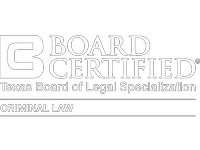

It’s best to think twice before passing a drink to someone underage. In Lubbock, providing alcohol to a minor is a common charge filed against convenience store clerks and bartenders who do not properly check the identification of someone attempting to purchase alcohol. Furnishing alcohol to a minor is also a common arrest among college students who provide alcohol to minors at parties, tailgates, or other events.
Providing alcohol to minors can put you behind bars for up to a year and carries up to a $4,000 fine per guidelines by the Texas Alcoholic Beverage Commission. If you have been arrested for providing alcohol to a minor, you should seek legal help from an experienced criminal defense lawyer. Your finances, freedom, and career may be at risk.
This may surprise you, but in Texas, it is LEGAL for a parent to provide alcohol to their child in limited settings. The parent must be present while the child drinks and is responsible for their children. However, parents that provide easy access to alcohol in the home are breaking the law.
The parent must also take responsibility for any actions a minor takes while under the influence of alcohol, including:
These charges are applied to any knowing adult on the property where drinking occurs, regardless if they are the parent’s children or not.
 Unlike an arrest for drunken driving, which depends on factors such as the suspect’s ability to pass a sobriety test or a breath test, Texas’ public intoxication law does not require evidence beyond an officer’s belief you may be dangerous to yourself or others around you.
Unlike an arrest for drunken driving, which depends on factors such as the suspect’s ability to pass a sobriety test or a breath test, Texas’ public intoxication law does not require evidence beyond an officer’s belief you may be dangerous to yourself or others around you.
For example, let’s say you have a few too many drinks and decide to walk home instead of drive. You are actually susceptible to arrest while walking home since you could hypothetically trip and fall down and become a danger to yourself or others.
The tricky thing about public intoxication is it’s one of the few laws on the books that allows for hypotheticals. In most other crimes, a criminal act has to be committed in order to justify the charge.
If you’re out in public and an officer believes you are showing any signs of intoxication, you’re looking at a Class C misdemeanor and possible arrest. Keep in mind, a public place can also mean anywhere that is licensed or permitted under the Alcohol and Beverage Code. A Texas Tech student was recently hauled off to Lubbock County Jail for public intoxication charges.
Even if underage, it’s possible to receive a citation for public intoxication. As a minor, however, you’re looking at the possibility of additional punishments such as alcohol awareness courses, possible driver’s license suspension up to 180 days, and mandatory community service. Any prior alcohol related charges result in stiffer penalties. Don’t take chances. Consult a licensed attorney immediately.
Minor in possession (MIP) of alcohol charges are a Class C misdemeanor and multiple violations can lead to $2,000 fines and 180 days in jail.
Available for appointments in our office, phone and video conference.
Whether you were charged in Lubbock, the panhandle or elsewhere in Texas, our law firm is taking on new clients and happy to provide legal advice.
No obligation, confidential and complementary!